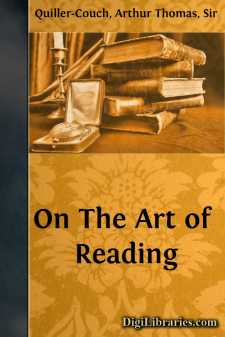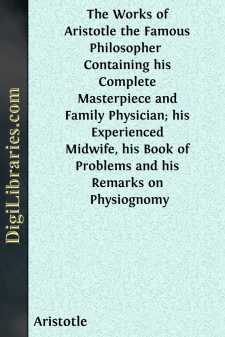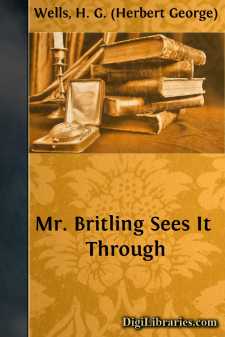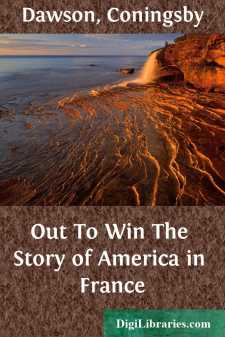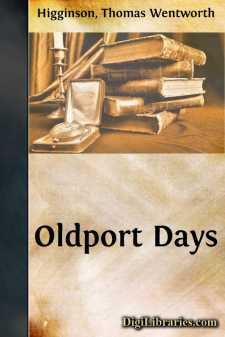Categories
- Antiques & Collectibles 13
- Architecture 36
- Art 48
- Bibles 22
- Biography & Autobiography 813
- Body, Mind & Spirit 142
- Business & Economics 28
- Children's Books 15
- Children's Fiction 12
- Computers 4
- Cooking 94
- Crafts & Hobbies 4
- Drama 346
- Education 46
- Family & Relationships 57
- Fiction 11828
- Games 19
- Gardening 17
- Health & Fitness 34
- History 1377
- House & Home 1
- Humor 147
- Juvenile Fiction 1873
- Juvenile Nonfiction 202
- Language Arts & Disciplines 88
- Law 16
- Literary Collections 686
- Literary Criticism 179
- Mathematics 13
- Medical 41
- Music 40
- Nature 179
- Non-Classifiable 1768
- Performing Arts 7
- Periodicals 1453
- Philosophy 64
- Photography 2
- Poetry 896
- Political Science 203
- Psychology 42
- Reference 154
- Religion 513
- Science 126
- Self-Help 84
- Social Science 81
- Sports & Recreation 34
- Study Aids 3
- Technology & Engineering 59
- Transportation 23
- Travel 463
- True Crime 29
Sort by:
LECTURE I INTRODUCTORY WEDNESDAY, OCTOBER 25, 1916 I In the third book of the "Ethics", and in the second chapter, Aristotle, dealing with certain actions which, though bad in themselves, admit of pity and forgiveness because they were committed involuntarily, through ignorance, instances 'the man who did not know a subject was forbidden, like Aeschylus with the Mysteries,' and...
more...
by:
Horatio Alger
Chapter I.—The First Pair Of Shoes. From a small and rudely-built log-cabin a sturdy boy of four years issued, and looked earnestly across the clearing to the pathway that led through the surrounding forest. His bare feet pressed the soft grass, which spread like a carpet before the door. "What are you looking for, Jimmy?" asked his mother from within the humble dwelling. "I'm...
more...
by:
Aristotle
PART I—BOOK I THE MASTERPIECE On marriage and at what age young men and virgins are capable of it: and why so much desire it. Also, how long men and women are capable of it. There are very few, except some professional debauchees, who will not readily agree that "Marriage is honourable to all," being ordained by Heaven in Paradise; and without which no man or woman can be in a capacity,...
more...
Chapter I The Dimplesmithy Grown people have such an exasperating way of saying, "Now, when I was a little girl—" Then, just as you prick up the little white ears of your mind for a story, they finish, loftily, "I did—or didn't do—so-and-so." It is certainly an underhand way of suggesting that you stop doing something pleasant, or begin doing something unpleasant; and you...
more...
by:
Edmund Burke
INTRODUCTION Edmund Burke was born at Dublin on the first of January, 1730. His father was an attorney, who had fifteen children, of whom all but four died in their youth. Edmund, the second son, being of delicate health in his childhood, was taught at home and at his grandfather’s house in the country before he was sent with his two brothers Garrett and Richard to a school at Ballitore, under...
more...
CHAPTER THE FIRST § 1 It was the sixth day of Mr. Direck's first visit to England, and he was at his acutest perception of differences. He found England in every way gratifying and satisfactory, and more of a contrast with things American than he had ever dared to hope. He had promised himself this visit for many years, but being of a sunny rather than energetic temperament—though he firmly...
more...
by:
Coningsby Dawson
I The American Troops have set words to one of their bugle calls. These words are indicative of their spirit—of the calculated determination with which they have faced up to their adventure: an adventure unparalleled for magnitude in the history of their nation. They fall in in two ranks. They tell off from the right in fours. "Move to the right in fours. Quick March," comes the order. The...
more...
OLDPORT IN WINTER. Our August life rushes by, in Oldport, as if we were all shot from the mouth of a cannon, and were endeavoring to exchange visiting-cards on the way. But in September, when the great hotels are closed, and the bronze dogs that guarded the portals of the Ocean House are collected sadly in the music pavilion, nose to nose; when the last four-in-hand has departed, and a man may drive a...
more...
Our aim is to bring up to date the list of kinds of bats actually known from Barro Colorado Island, Panamá. In 1952 Samuel T. Dickenson, Marguerite Schultz, George P. Young, and E. Raymond Hall spent the first 17 days of April (except Mrs. Schultz who left on April 8) on Barro Colorado Island. On eight evenings a silk net, 30 feet long and 7 feet high with a ¾-inch mesh, was stretched in an open...
more...
by:
Bliss Perry
CHAPTER I. THE PIONEERS The United States of America has been from the beginning in a perpetual change. The physical and mental restlessness of the American and the temporary nature of many of his arrangements are largely due to the experimental character of the exploration and development of this continent. The new energies released by the settlement of the colonies were indeed guided by stern...
more...


